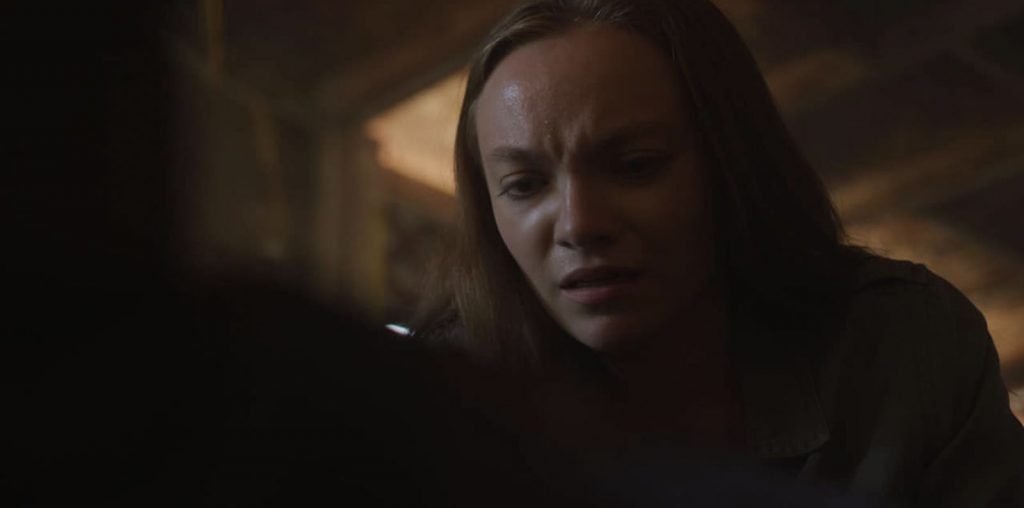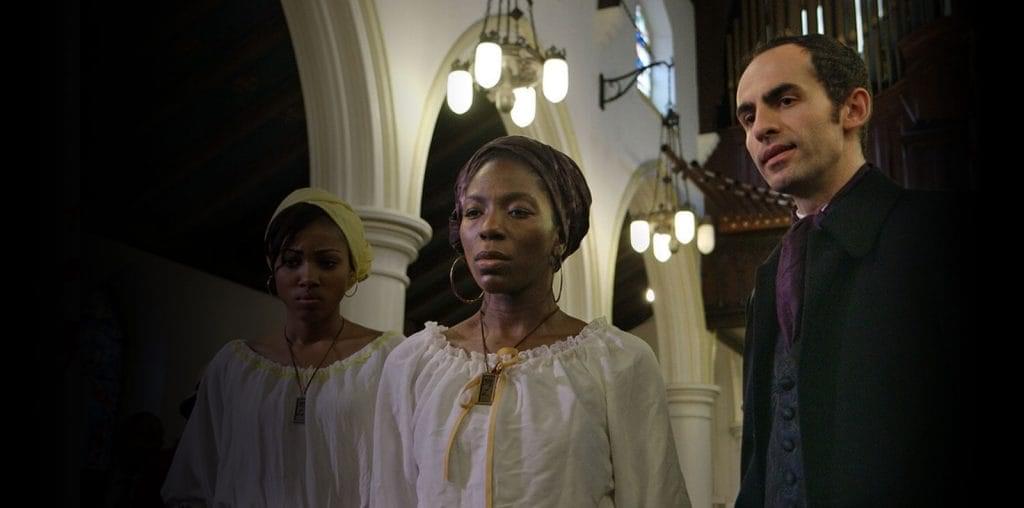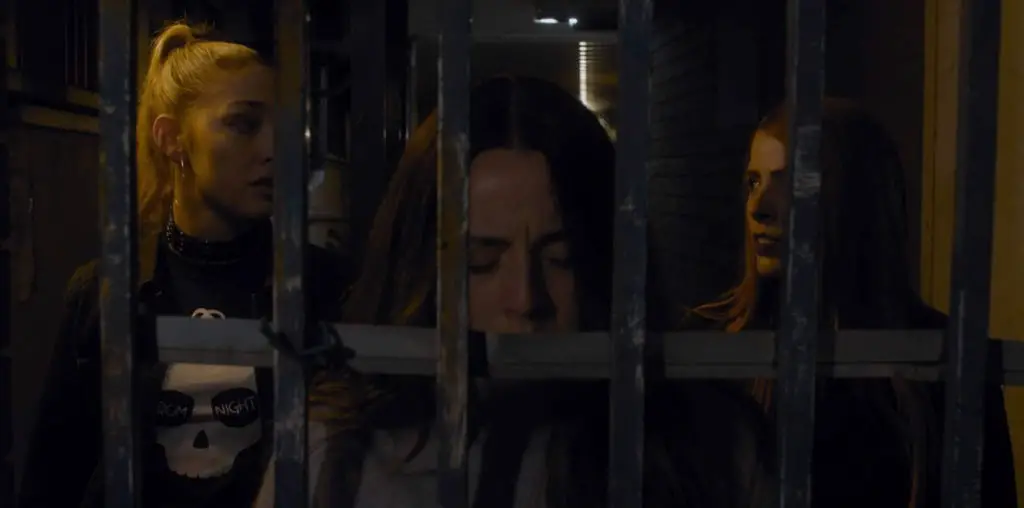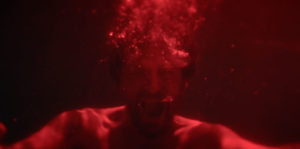
Darkest Of Lies, written and directed by Kelly Schwarze, begins with military veteran turned sculptor Travis (Christopher Brown) and his wife, lawyer Rochelle (Hailee Lipscomb), moving into a new house. Their life in New York became too much for them… well, for Rochelle. Travis agreed to start anew to save their marriage, though how they got the nice house with a swimming pool for “practically nothing” doesn’t sit right with him.
Also not sitting right with Travis are Rochelle’s married friends, Linda (Sabrina Cofield) and Tom (Michael Forsch). Linda believes this place is well beneath her and her friend, despite Rochelle’s insistence that she loves it. Tom is arrogant, convinced he knows more about anything than everyone else. What’s worse, though, is that during Rochelle’s frequent 10 to 12-hour work days at the firm, the house seems to be taunting and teasing Travis. Is Travis just completely broken with reality, or is something dwelling behind this abode’s delightful facade?
A tormented artist being taunted by supernatural forces beyond his control or succumbing to his demons. Yeah, that’s a story that has been told before. But Schwarze wisely shows his influences for Darkest Of LIes before the first minute is up: the central couple’s new house is on Shining Way. Of course, very few horror films can match the sheer terror of that Kubrick classic, meaning the filmmaker has set himself quite the challenge. But the man was able to bend the traditional ghost story into something different and surprising in the underrated Abigail Haunting, so perhaps he can achieve similar results here.
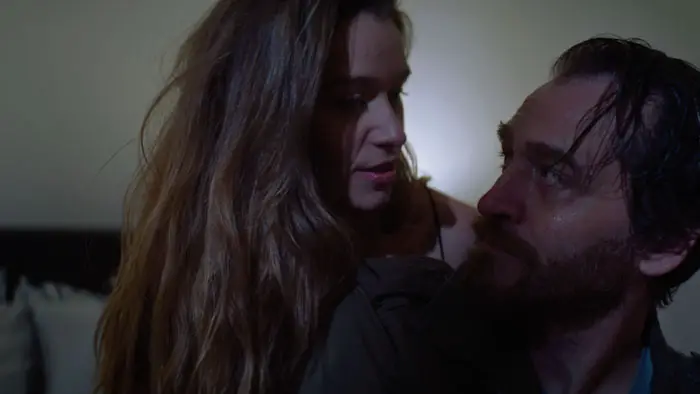
“…the house seems to be taunting and teasing Travis.”
Well, Schwarze is modestly successful in that regard. However, the film’s runtime of 111 minutes means that things start to get repetitive before the third act kicks things into high gear. Linda and Tom are so reprehensibly obnoxious that it’s hard to figure out how anyone, much less the level-headed and big-hearted Rochelle, is their friend. Unfortunately, are they necessary for the finale, or are they? See, a senior partner at Rochelle’s home owns the house and is leasing it to them well below market value. At first, Travis doesn’t know who it is, and when he finds out, that jealousy only lasts a few scenes. Leaning more into that angle and excising the friends would amp up the marital tensions and still allow the conclusion to play out in mostly the same way.
That matters because the ending of Darkest Of Lies totally works. That is partly because Brown and Lipscomb are totally committed to their respective roles. Like Travis, Brown is both sympathetic and hateable. Lipscomb turns Rochelle into a patient wife but only to a point. Their fights, especially one about not coming to a dinner/wine gathering downstairs, are believable and tension-filled. While their characters don’t work, Cofield and Forsch do what they can with the material.
Beyond the acting, Schwarze showcases some genuinely impressive directing talent. There’s no dialogue for the first five minutes, which lets the cinematography and acting do a lot of the heavy lifting. It is gripping and moody, setting the perfect tone for all that follows. Several scenes throughout are dialogue-free or have just one or two lines to them, meaning this is a true cinematic experience. But again, some sequences feel repetitious.
Darkest Of Lies isn’t very original, but that doesn’t mean it is bad. The cast is good, and the directing is great. While the film does feel its nearly 2-hour runtime, the ending is exceptional.
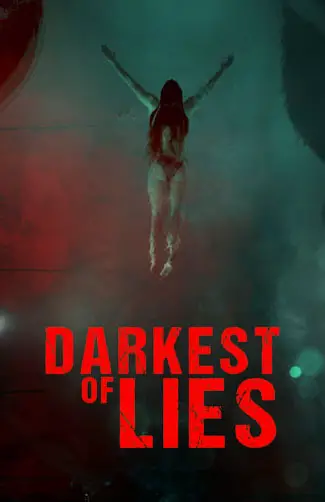
"…Brown and Lipscomb are totally committed..."
